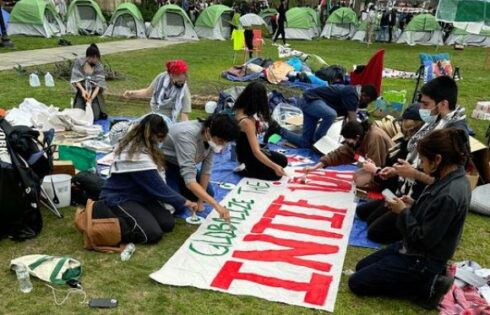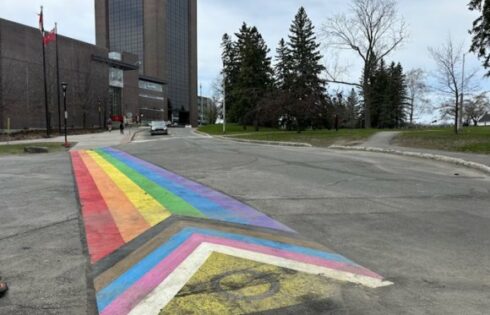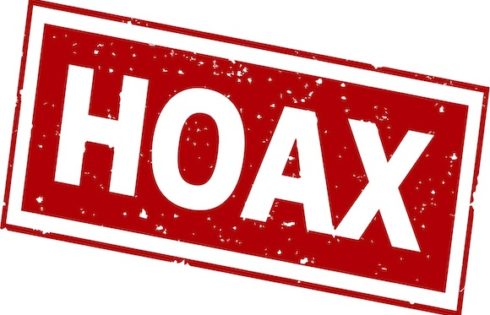The University of Oregon may ban the sale of bottled water on campus, due to its environmental effects, a growing trend on campuses nationwide.
The movement is part of a national campaign called “Take Back the Tap,” which was adopted and promoted by the Climate Justice League, a superhero cape-wearing environment-advocating student group at the U of O.
“Bottled water is not necessary because we already have perfectly good tap water, and it’s terrible for the environment. It’s better just to get it out of our economy, and out of our ecosystems,” said freshman Manny Garcia, co-coordinator of UO’s Take Back the Tap.
“If you were to take, in 2009, all the bottled water, and you stacked them on top of each other, you would go to the moon and back 65 times,” he said, adding that only 5 percent of those are recycled worldwide.
The Associated Students of the University of Oregon has voted to support Take Back the Tap’s proposal to ban the sale of bottled water; the proposal was passed 12-3-1.
There is no official data yet on how many bottles are sold on campus. Officials have collected data on the dining halls, but do not yet have figures from the food vendors in the student union or the athletics department, which they expect to be a substantial percentage of the total.
In the context of national numbers, colleges—even large ones—account for a small sliver of the total consumption.
In November, the Cornell student senate banned the sale of bottled water, though the environmental impact could be overblown. The student senate estimated approximately 700,000 bottles of water were sold on campus a year. A columnist at the school determined 700,000 bottles amounted to 0.0014 percent of the national sales—saving 448 gallons of oil, or 23 gallons of gasoline a year.
The data mining at Oregon follows the student senate vote, which encouraged the university to adopt the group’s proposals before the year 2012.
Among those plans is installing water spigots on 29 drinking fountains on campus, which would make it easier for students to fill up their own water bottles, supporters say.
Other schools have run into trouble with similar spigot projects.
Penn State made the switch to tap-only on parts of their campus, working with drinking-fountain manufacturers to create water-bottle fountains. The taps collected bacteria, and had the potential to transmit it from bottle to bottle. The redesigned filters may cost $150 per station per year, leaving no financial incentive to move away from bottled water.
Take Back the Tap also applied for and received funds from the ASUO to buy 1,200 reusable bottles to distribute to students. Previously, the ASUO barred student groups from using student fee money to buy bottled water for events, at risk of their funding for the following year being cut.
The campaign is also focusing on the issue of quality of drinking water compared to tap water. While bottled water may cost about 15,000 times more per ounce, consumers aren’t necessarily paying for quality, Garcia said.
“[The Eugene Water and Electric Board] exceeds federal regulations, and they test their tap water 85,000 times a year for any kind of contaminate, and they test at the points where water comes out,” he said. “Where as bottled water corporations are only required to test their bottled water 52 times a year.”
Even in areas where tap water is less palatable, the idea of banning bottled water is catching on. Sixty-seven other colleges around the country are taking part in the Take Back the Tap program, from Harvard to the University of Houston. Additionally, Portland’s Multnomah County recently attached the tagline to a bill banning the purchase of bottled water using county funds.
The Food and Water Watch, a Washington D.C.-based consumer-advocacy nonprofit, runs the program, and owns the trademark to the name. The group was born in 2005, when it split from its parent group, Public Citizen, a consumer rights advocacy group started in 1971 by Ralph Nader.
The organization most recently made headlines by convincing Starbucks to no longer use milk originating from cows treated with bovine growth hormones, and has in the past been highly critical of both the bottled water and meat processing industries.
Now that the campaign has support from the ASUO at Oregon, the proposal will go to the Environmental Issues Committee, which has begun collecting data on how many bottles of water are sold at the various campus vendors. It will then be passed on to the Vice President of Finance and Administration, Frances Dyke, who will either approve the measure, pass it to a sub-committee, or allow the University Senate to vote on it.
Ben Maras is a staff writer for the Oregon Commentator. He is a member of the Student Free Press Association.
Like The College Fix on Facebook / Follow us on Twitter




Please join the conversation about our stories on Facebook, Twitter, Instagram, Reddit, MeWe, Rumble, Gab, Minds and Gettr.